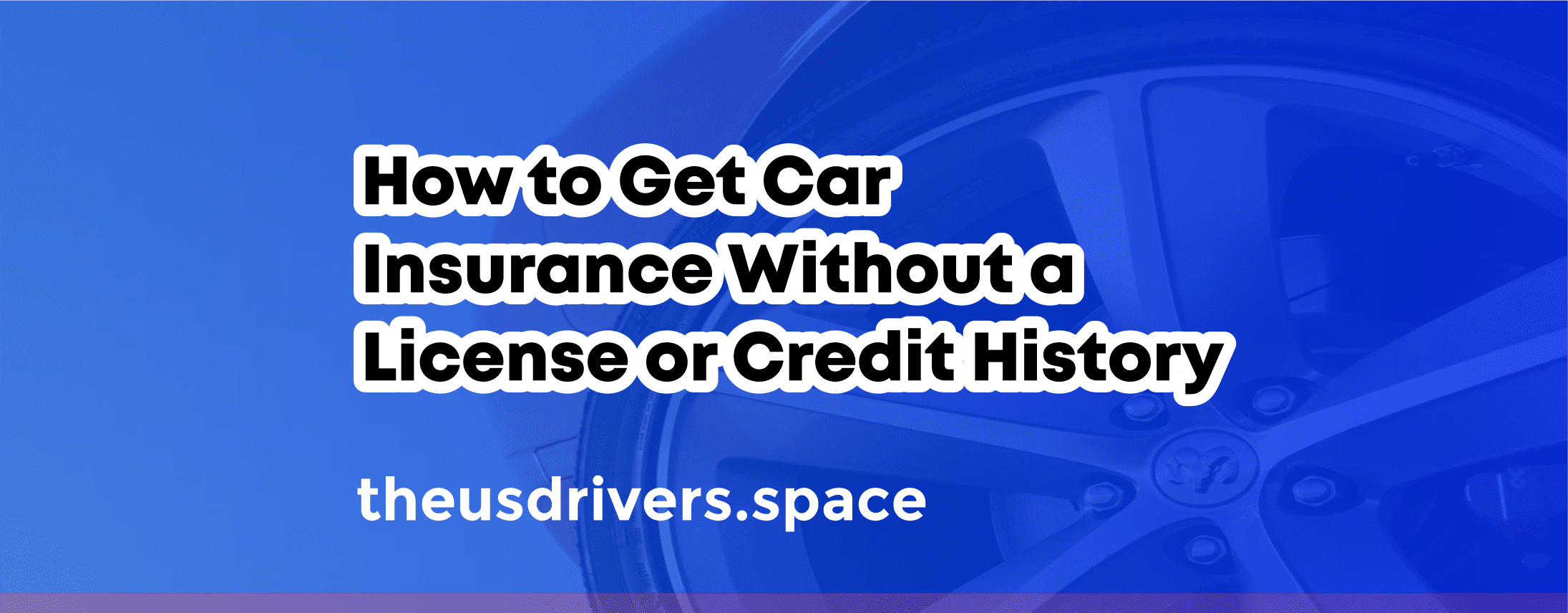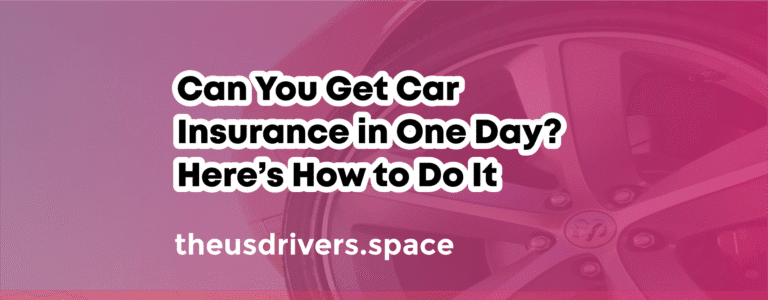How to Get Car Insurance Without a License or Credit History
Getting car insurance is already a challenge for many people—but it can feel even more difficult if you don’t have a driver’s license or credit history. Whether you’re a new resident in the U.S., have a suspended license, or are purchasing a car for someone else, the good news is that you can still get car insurance without a license or credit history.
This guide breaks down the process in simple terms, so you’ll know exactly what to expect, what companies to consider, and how to save money along the way. Plus, we’ll use plenty of SEO-rich keywords so you can easily find and share this information online.
🚗 Best Auto Insurance Rates
Speak with a licensed agent today for a fast, affordable quote. Save big on your auto insurance now!
- Compare Top Insurance Providers
- Low Monthly Payments
- No Obligation to Buy
Toll-Free. Open Mon–Sat. Speak to a U.S. Agent
Why You Might Need Car Insurance Without a License or Credit History
There are many reasons someone might need car insurance without a license or credit history:
- You’re buying a car for a family member or employee
- Your license is suspended but you still need to maintain insurance
- You’re applying for a driving permit
- You’re moving from another country and haven’t built credit yet
- You’re a senior no longer driving but still own a car
Whatever the reason, insurers recognize that these situations exist—and some are more flexible than others.
Can You Legally Buy Car Insurance Without a Driver’s License?
Yes, you can. While some insurance companies may deny your application, others will allow it. However, you’ll often need to list a primary driver on the policy who has a valid license. This person should be someone who will regularly operate the vehicle.
If you’re the owner of the car but don’t plan to drive it, the insurance will be in your name, but the listed driver will be the one behind the wheel. This allows you to insure your vehicle legally, even without a license.
Can You Get Car Insurance Without a Credit History?
Yes, but expect to face higher premiums. Most insurers use a credit-based insurance score to assess risk. Without that data, they may classify you as higher risk by default.
That said, many insurance providers specialize in helping those with no credit history or limited financial background. Some states—like California, Hawaii, and Massachusetts—prohibit using credit scores to determine rates.
How to Apply for Car Insurance Without a License or Credit History
Here’s a simplified step-by-step guide:
- Choose a Licensed Driver – Pick someone with a clean driving record to be your policy’s primary driver.
- Get a Quote from Flexible Providers – Look for companies that offer non-standard or high-risk policies.
- Explain Your Situation – Be honest about why you don’t have a license or credit history. Some agents are more understanding than others.
- Provide Necessary Documentation – Vehicle registration, ID, and proof of residence may be required.
- Expect a Higher Premium – Without a license or credit score, your quote may be more expensive, but there are still ways to lower it (see tips below).
🚘 Affordable Auto Insurance
Protect your vehicle with the best rates from top providers. Quick, simple, and personalized quotes available now!
- Save Money On Your Premium
- Trusted Insurance Companies
- Fast & Easy Process
Call Toll-Free. Licensed Agents Ready To Help.
Insurance Companies That May Offer Policies Without a License or Credit
Not all insurers will work with you, but these are known to be more flexible:
- The General – Focuses on high-risk and non-traditional policies
- Dairyland Insurance – Known for SR-22 and unconventional coverage
- Acceptance Insurance – Offers non-standard auto insurance options
- Bristol West (part of Farmers Insurance) – Sometimes works with unlicensed applicants
- National General – Good for unique driver situations
Tip: It’s best to call and speak directly with an agent instead of relying solely on online quotes.
What Is an SR-22 and Do You Need One?
An SR-22 is a certificate some states require to prove you have the minimum car insurance coverage. It’s often needed after a license suspension due to:
- DUI/DWI
- Multiple traffic violations
- Driving without insurance
If your license is suspended, an SR-22 might be necessary to reinstate it. Companies like The General and Dairyland specialize in SR-22 filings.
Tips to Lower Your Insurance Premium Without a License or Credit
Even if you’re considered “high-risk,” there are ways to reduce your costs:
- Increase Your Deductible – A higher deductible lowers your monthly premium.
- Use a Vehicle with Safety Features – Insurers reward cars with anti-theft and safety systems.
- Enroll in Automatic Payments – Some providers give small discounts.
- Ask for Discounts – Such as low mileage, good student (if applicable), or bundling policies.
Common Mistakes to Avoid
- Using False Information – Never claim to have a license or credit score when you don’t. This could invalidate your policy.
- Letting Insurance Lapse – Maintaining continuous coverage can help lower your premiums over time.
- Only Shopping with Big Brands – National companies may not always accommodate non-traditional drivers. Try regional or independent agencies.
Real-Life Scenario: Miguel’s Story
Miguel recently moved from Mexico to Texas. He hadn’t built any credit yet and was still waiting on his U.S. driver’s license. However, he needed to insure a car he bought for his son.
After being denied by a major brand, Miguel contacted Dairyland and explained his situation. They helped him set up a policy using his son as the primary driver. It wasn’t cheap, but it was legal—and within six months, his son qualified for a safe-driver discount.
Final Thoughts
Getting car insurance without a license or credit history isn’t easy, but it’s definitely possible. The key is knowing your options, being transparent with insurers, and working with companies that specialize in non-standard policies.
Whether you’re insuring a car for someone else, trying to rebuild your record, or just starting fresh in the U.S., there are companies that can help. Be patient, compare offers, and make sure you understand the terms before signing up.
With time and good planning, you’ll be able to transition into traditional policies as your situation improves.


